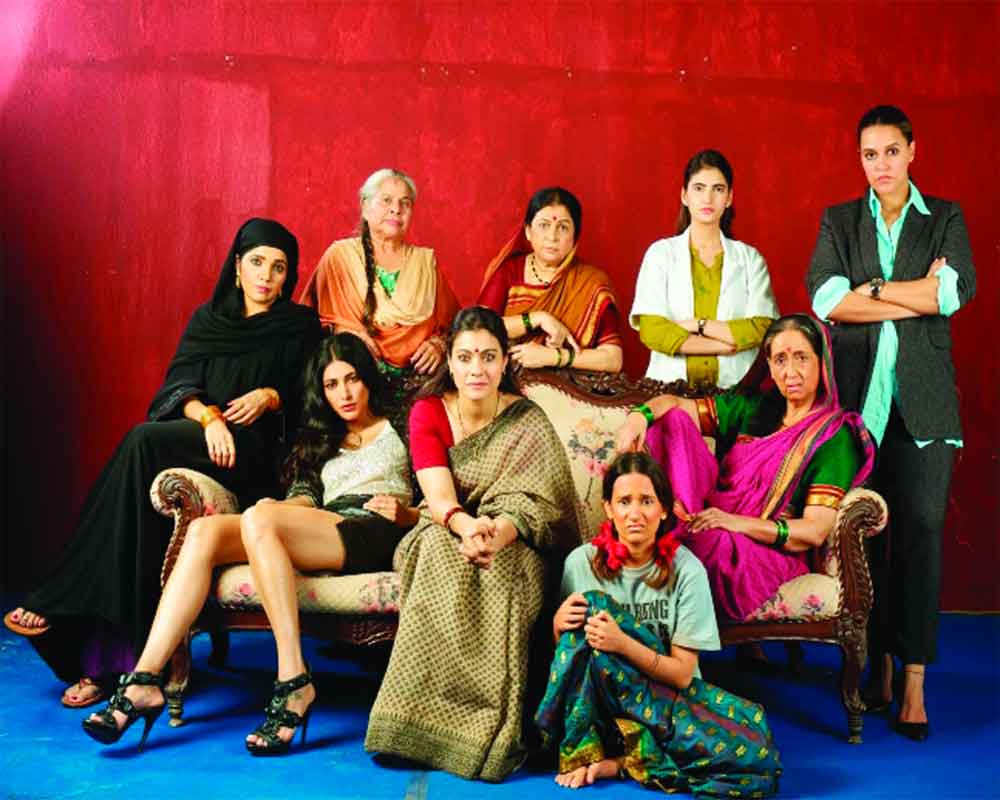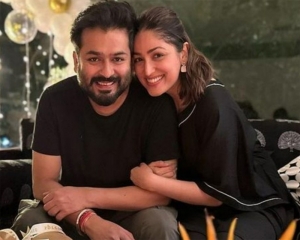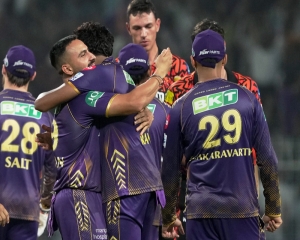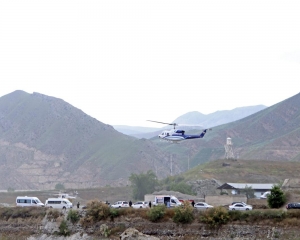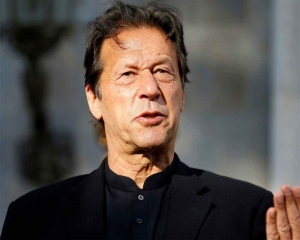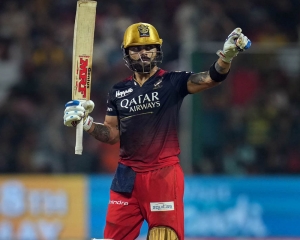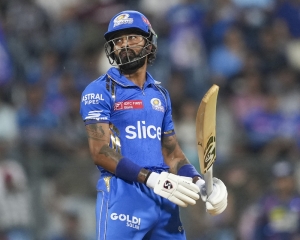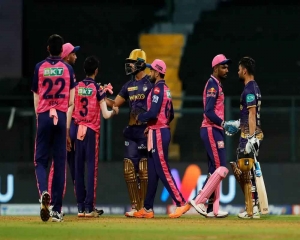Director Priyanka Banerjee tells Chahak Mittal how she was inspired by Jean Paul Sartre’s classics while writing her latest short film, Devi, where she unites diverse women with a commonality of abuse
A 17-year-old school girl struggles with the TV remote and flips through channels in the corner of a hall, which is shared by a few other women — each one distinct from the other. Three old Maharashtrian women peel vegetables while a woman in a burqa waxes her legs quietly on the floor. Another woman in her mid 20s, wearing a shiny jacket apt for a party, pours herself another glass of vodka and gulps it down in one swig. Next to her is her friend who seems to have just returned from a high-profile corporate meeting in her office. At the other end of the hall, a young student, engrossed in her studies, sits at the dining table wearing her white lab coat, certainly prepping for a medical exam. A woman in sari emerges with a pooja ki thaal and serves prasad to everyone in the room. While each personality looks different from one another, they all have one thing in common — they have been assaulted. And they are dead within.
This is what director Priyanka Banerjee’s 13-minute short film Devi brings to the fore. It brilliantly brings women from different walks of life, age, community and class together and points out that when it comes to crimes against women, no one is spared. The director, by placing them under one roof and making these women confront the differences, points out yet again that none of these matter. The film finally conveys to the audience a simple message — what it is like to be a woman?
How did you conceptualise the film?
I’ve been a student of theatre since I was 17. Hence, I’ve always been involved in playwriting. I am drawn to some kind of surrealism or the absurd mixed into a realistic situation. Jean Paul Sartre’s play, No Exit, is one of those classics that every theatre kid knows and I think the idea of deceased people discussing their lives in a purgatory state was inspired from that. I also remember an illustration showing two rape victims chatting in heaven. I remember thinking then that it might be an interesting idea to see what a group of women, who have shared a similar fate, would say to each other if we kept them incredibly human and realistic. The idea emerged from this line of thinking.
How did you conceptualise such an idea of putting women from different social strata in the same room? The film showcases how women need to live in communal harmony and have each other’s back at all costs...
I tried penning the characters I had seen around me. I’ve been around working women my entire life. My mother has always worked. I’ve seen my house-helps and the backgrounds they come from too. When you go to a salon, the fish market or a hospital, these women are all around us. The diversity wasn’t as intentional as it was natural. It just happened while I was writing. I’ll credit my theatre background once again here because you tend to act out parts as you’re writing and that helps give a real voice to each character. The bickering, debates and more come from that.
What is your take on how such films are able to bring about a change in society?
Especially in India, where filmstars are seen as close to deities, films have a great social impact, too. I would still use the word impact because it is unfair to expect art or films to change society or the way people think. We can offer food for thought but the real change is a long drawn out process involving many other ground realities.
Also, how do you think society is reacting to content-driven and realistic films, which are now the trend?
I think it’s incredible that now content is the true king. It’s not just a phrase thrown around for effect. Given the recent success of so many content-driven, realistic films, where the power lies in the script, it’s evident that the audience is reacting very well to honest storytelling.
There have been many films that talk about sexual assault on women at length. How do you think Devi is different?
I hope that the film is seen as different because it doesn’t preach a message forcefully. We have tried our best to just present reality as it is and these women, as flesh-and-blood characters, have quirks and flaws just like the rest of us. I think this film may be perceived differently because we have tried to make the characters familiar. We wanted to make the pain of what happened to them felt more deeply by the audience.
Why did you name it Devi?
I would credit our producer Niranjan Iyengar for this. We wanted a single word title that would capture the essence of the film. This immediately clicked with everyone when he titled it. It’s because I guess this word has such a subconscious significance for us and to think of it in this context is very moving.
Do you think a short film limits the creativity of a director? Had it been a big screen film, how would you have played it out?
Not at all! Short films do not limit you in the least. It is a different genre altogether. It allows you to tell a story or say something complete in itself in a short period of time (usually less than 45 minutes). It’s a unique challenge and I don’t think it should be confused with a mini feature film. Features have their own beauty because they allow for a long drawn out explorations of the plot and the characters. An audience can feel like they have lived a lifetime watching a feature. Shorts, to me, are just about leaving someone with a feeling. I don’t think Devi could have been a feature, at least not if I’m writing it because I wouldn’t know how to make it like that. I feel the thought lends itself to this short format and this makes the most impact on maximum people.
(The film can be streamed on YouTube.)













